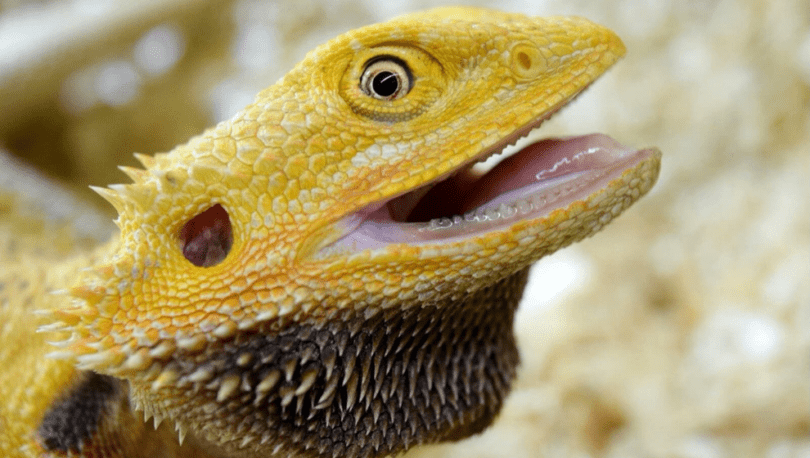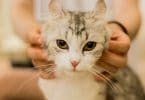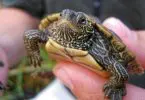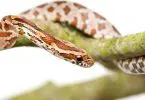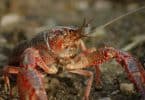Bearded dragons as pets are famous for being low-maintenance and friendly. However, it would be best if you focused on specific factors when it comes to maintaining health. Oral health is the most crucial topic of discussion when it comes to the subject of care in any pet. So, many of the new bearded dragon owners questioned us if the bearded dragon has any teeth. Moreover, how should they maintain the oral health of their pet?
In this article, we have discussed all about the teeth and overall oral cavity of a bearded dragon. Moreover, how can you prevent the most common oral infectious diseases in them.
Table of Contents
Do Bearded Dragons Have Teeth?
Yes, bearded dragons have teeth. However, they are of small size and are visible hardly.
Bearded dragon’s teeth are there to eat efficiently other than self-defense. Bearded dragons have many tiny teeth that let them eat insects like crickets, mealworms, and a variety of other bugs.
Bearded agons have accordant teeth, i.e., they do not have roots like humans and are only fused with bones. Bearded dragons are well-suited to eating a wide variety of foods because they often live in the wild when food is scarce. Their teeth provide them a lot of versatility when it comes to chewing different things.
How Many Teeth Bearded Dragon Have?
Bearded dragons have 24 to 37 teeth in total. The number varies from individual to individual.
A bearded dragon’s tooth count fluctuates, with upper jaw accordant teeth ranging from 11 to 17 on each side and lower jaw accordant teeth ranging from 13 to 20 on each side. The accordant teeth of bearded dragons are triangular.
The upper and lower jaws of a bearded dragon each have four pleurodont teeth. The giant bearded dragons have even pleurodont teeth, but the smaller species have uneven pleurodont teeth.
When compared to other creatures, including reptiles, bearded dragons’ teeth are regarded as uncommon. Their front teeth fall out and regrow regularly. Teeth are used mainly to capture and tear apart living prey, which is usually in the form of insects.
Their side teeth are securely linked to their jaws and are fixed and permanent. On the other hand, the side teeth are employed for chewing vegetable matter and breaking down the tough fibers in this sort of food.
Factors Affecting The Oral Health Of Bearded Dragons
The dental health of bearded dragons is valuable as teeth help them to chew a variety of food that is good for their growth.
Three major factors can affect the teeth of bearded dragons:
Diet
Make sure that your bearded dragons are given a good diet, including some vitamin supplements when needed. Plaque can affect Bearded Dragons, just like humans, if their teeth are not cleaned and cared for regularly.
Plaque hardens into tartar over time, causing difficulties with your beardie’s teeth and gums, as well as pain. Reptile specialists recommend reducing the amount of citrus and sweet fruits you serve your reptiles to avoid this. Instead, consume more insects and vegetables.
Lightening
Another vital requirement for your bearded dragon’s healthy teeth is having enough light in the habitat.
They will be able to absorb calcium adequately and effectively if UVB lighting is used correctly. If the setup is incorrect, defective, or malfunctioning, it can have a wide range of consequences for your bearded dragon’s health, with the teeth being only one of them.
Stress And Fighting
Avoid stressful situations like fighting another bearded dragon or seeing their reflection in a mirror. Teeth injury or loss can occur as a result of the fighting, thrashing, and other similar actions.
Causes Of Tooth Damage In Bearded Dragons
Our beloved bearded dragon may lose one or more teeth as a result of dental fractures, infections, or periodontal disease. Periodontal disease is an inflammation that surrounds teeth. It begins with plaque build-up followed by gingivitis.
When teeth become dirty, nasty bacteria surround them, and prolonged exposure to these bacteria can cause infection and inflammation, known as periodontal disease.
How To Prevent Teeth Problems In Bearded Dragons?
The most important thing is to inspect your pet’s teeth frequently. Setting up a check-in schedule, such as every two weeks or once a month, will assist you in staying on top of the problem. It takes less than a minute and can be helpful.
Many bearded dragon owners have their pets’ teeth cleaned by a veterinarian once a year. Dental care is essential for all living things.
But when it comes to bearded dragons, dental care is of great attention because they are more captivated by dental diseases. So, it would help if you are focused on excellent dental hygiene for your beardie.
To keep your beardie’s teeth in good shape, feed them well-balanced food, reduce stress, and brush their teeth regularly. A poor diet can also cause teeth disease in bearded dragons. Make sure they eat a variety of hard and soft foods.
Keep an eye out for any additional conditions that could be causing tooth damage and take appropriate action. Consider adding additional exciting resources to the ecosystem if they are hitting their heads against the glass or doing such other activity.
Cleaning Of Bearded Dragon's Teeth
The tooth cleaning of a bearded dragon is essential as they are prone to dental diseases. Your bearded dragon’s teeth should be cleaned regularly to prevent tooth loss, wear, and gum disease, as well as to extend the pet’s survival.
It is also recommended that you clean your bearded dragon’s teeth 1-2 times per week. Bearded dragons are prone to periodontal disease, which highlights the importance of periodic dental treatment.
Clean your bearded dragon’s teeth using a wet cotton bud by gently wiping its teeth and gums. You can use water or a diluted chlorhexidine solution to wet the cotton bud. Once or twice a week, this procedure should be followed.
Clean your bearded dragon’s teeth using a wet cotton bud by gently wiping its teeth and gums. You can use water or a diluted chlorhexidine solution to wet the cotton bud. Once or twice a week, this procedure should be followed.
Chlorhexidine is a disinfectant and antiseptic that inhibits the growth of yeast, fungi, viruses, and bacteria.
Get the appropriate concentration for bearded dragon potency and safety. Also, look for discoloration, inflammation, or damaged teeth in their teeth.
Do Bearded Dragons Bite?
It is very rarely seen that bearded dragons bite. They usually use other tactics to defend and protect themselves when they are scared. If you show enough respect and care for your pet, then it will not happen.
The chances of getting a bite are only when your pet is under tremendous stress, and it has no other possibility. This situation can be avoided by feeding them a balanced diet and keeping them in a good mood.
We have a detailed note on the biting behaviors of bearded dragons. Please give it a read to know about it thoroughly, helping you have a better relationship with your pet.
Conclusion:
Bearded dragons have beautiful accordant teeth which they need to crush their food. However, they seldom use them to bite for their defense. Dental problems and infections are widespread in bearded dragons. Therefore, you need to focus on having healthy teeth as well as good overall oral hygiene for your bearded dragon.
I hope this article answered all of your questions. In case of any further queries, comment below or contact us. We would be happy to help.


